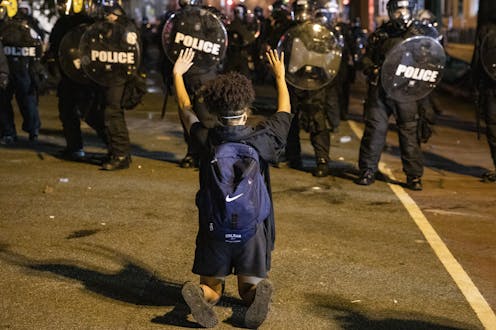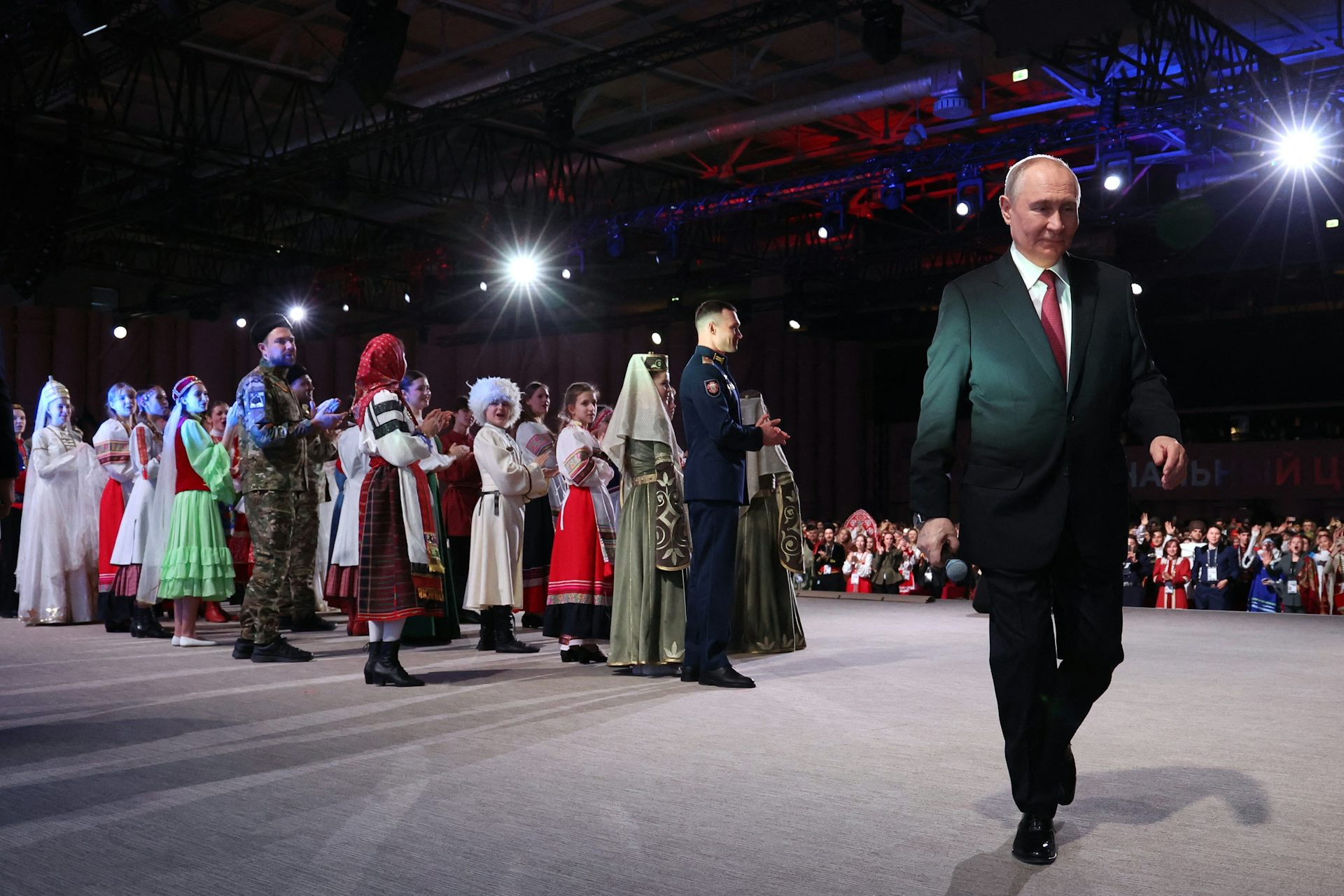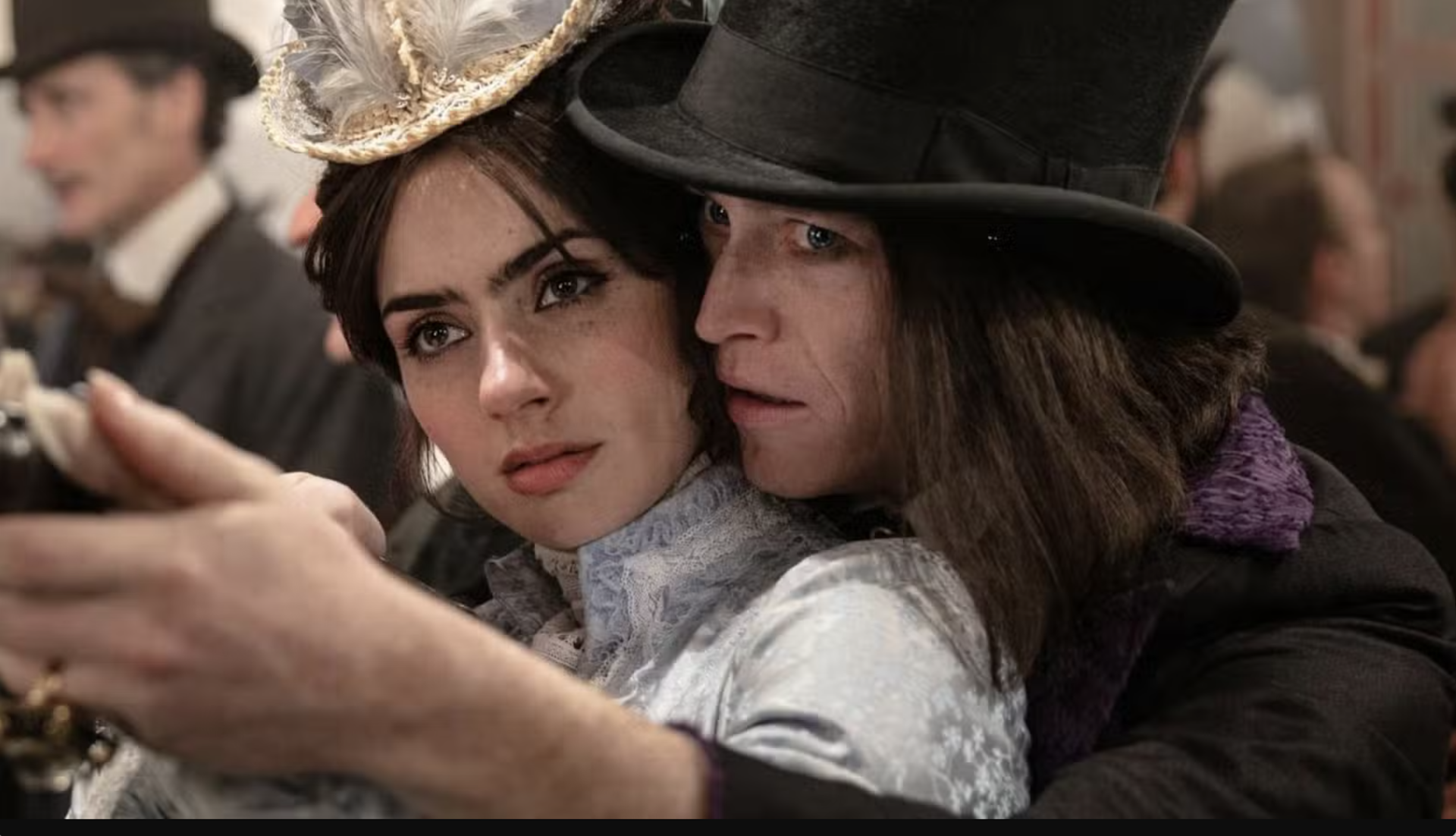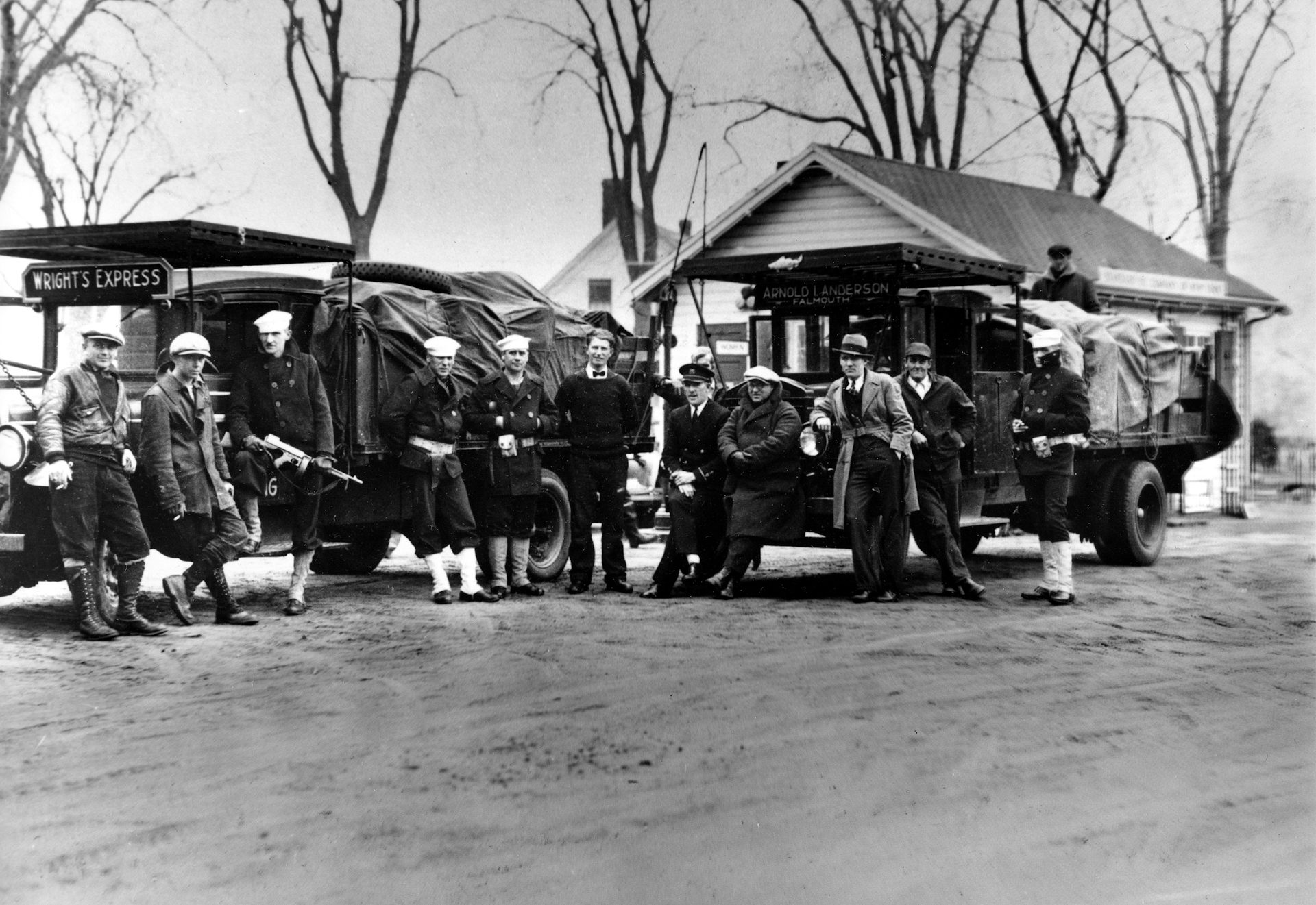Cities with Black women police chiefs had less street violence during 2020’s Black Lives Matter prot
The type of life and professional experience a police chief has can influence how their departments react to protests, new research finds.

Black Lives Matter protests in cities with Black women police chiefs experienced significantly lower levels of violence – from both police and protesters – than cities with police chiefs of other racial backgrounds and gender, according to our newly published paper.
After George Floyd’s death at the hands of Minneapolis police on May 25, 2020, the Black Lives Matter movement surged. Advocating for social justice, the movement galvanized over 11,000 protest events across thousands of cities in all 50 states. Most demonstrations were peaceful, but others were not, and city police chiefs had the job of dealing with street violence. In some communities, they engaged in dialogue with protesters; in others, they responded with force.
Our research included analyzing 11,540 protests that occurred between May 25 and Aug. 29, 2020, in 3,338 cities, spanning 1,481 counties and all 50 states. To ensure robustness and eliminate bias, we measured violence based on an independent categorization of violence, protest event descriptions, numbers of arrests and severity of the charges. We also researched the gender and racial background of the local police chief.
Our analysis, published in the Journal of Management, found that protests in cities with police departments led by Black women tended to be relatively peaceful.
Consider, for instance, Black female Chief Catrina Thompson in Winston-Salem, North Carolina, who chose dialogue over force. She conveyed solidarity with the Black Lives Matter cause and affirmed that peaceful protests could spur change without destroying the city.
By contrast, a protest in Lincoln, Nebraska, in late May 2020 saw a group of protesters break store windows and threaten police officers, which resulted in police officers – in a department led by white male Chief Jeff Bliemeister – firing pepper spray, tear gas and rubber bullets.
This and other research has found that through their personal and professional experience as they rise through the ranks of a traditionally male, white profession, Black women tend to develop a strong understanding of racial dynamics and use their knowledge to devise flexible strategies.
Of course, not all Black women lead in exactly the same ways, but they tend to share similar experiences that can help foster peaceful outcomes in times of social unrest.
Why it matters
Amid a backdrop of widespread protests and calls for social justice, public safety depends on peaceful interactions between police and demonstrators.
The study highlights the significance of having diverse leadership voices and the importance of recognizing and elevating individual identities. Despite a rise in the appointment of Black police chiefs over the past decade, Black women continue to be underrepresented in law enforcement leadership positions. This research highlights the value to society of including diverse perspectives and leadership approaches informed by the intersections of people’s identities.
What still isn’t known
Despite these insights, several questions remain unanswered. We do not yet know the specific way in which the leadership of Black women police chiefs translates into lower violence levels. We suggest the mechanism is a complex result of their communication strategies, community engagement practices and decision-making processes – but we do not know which has the most influence.
Our study also raises questions about how these findings about Black women at a time of Black protest might be applied to other civic leaders’ handling of demonstrations from different types of social movements.
What’s next
The study paves the way for more in-depth research into how intersecting identities – such as gender and race – affect leadership approaches and outcomes across various professions, not just law enforcement.
Ongoing research efforts – our own and others’ – are directed at better understanding how people’s identities inform their leadership styles and how they handle conflict. Future studies are also needed to explore how organizations and communities can better support Black women and promote them into leadership roles, ensuring their perspectives and skills benefit society as a whole.
The Research Brief is a short take on interesting academic work.
The authors do not work for, consult, own shares in or receive funding from any company or organization that would benefit from this article, and have disclosed no relevant affiliations beyond their academic appointment.
Read These Next
Why Stephen Colbert is right about the ‘equal time’ rule, despite warnings from the FCC
The ‘equal time’ rule has been around for a century and aims to promote broadcasters’ editorial…
As war in Ukraine enters a 5th year, will the ‘Putin consensus’ among Russians hold?
Polling in Russia suggests strong support for President Vladimir Putin. Yet below the surface, popular…
After a 32-hour shift in Pittsburgh, I realized EMTs should be napping on the job
A paramedic and university professor shares data about how strategic napping could help his own health…






